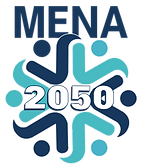Hamdan Almarar
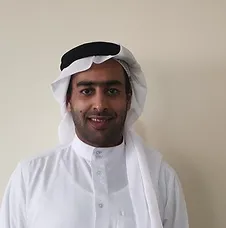
UAE
UAE
Hamdan Almarar was born and raised in Abu Dhabi. The Almarar family has held numerous government positions including the UAE’s first minister of education and minister of commerce. Hamdan holds a BA in Business Administration from the AlHosn University in Abu Dhabi. He started his career as a currency trader for the Al Hilal Bank prior to joining Falcon Private Bank Ltd as a relationship manager. Most recently he was appointed senior private banker at the Abu Dhabi Islamic Bank and has developed extensive knowledge about opening new businesses in the UAE and advising HNW individuals about business opportunities and solutions. He also holds several positions of board member for companies based in the UAE. Hamdan strives to build bridges and was a founder of the UAE-Israel Business Council. Besides his native Arabic, he speaks English and little bit of Hebrew and conducted the first interviews in Hebrew with Israeli media.
Osnat Lubrani
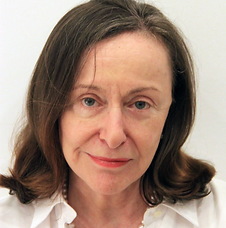
Israel, USA
Israel, USA
Osnat Lubrani served at the United Nations for 26 years in senior positions, including as UN Resident Coordinator and Humanitarian Coordinator in Ukraine (2018 – 2022), Fiji, and nine other Pacific Small Island States (2013-2018), and Kosovo (2009-2013). She also held several positions as a UNDP Resident Representative and as UN Women Director. As an international development practitioner, she holds
expertise in human rights, gender equality, transitions: conflict to peace, humanitarian to recovery, and sustainable development/resilience.Osnat Lubrani holds a Masters Degree in International and Public Affairs specializing in human rights, humanitarian affairs, and economic and political development (Columbia University 1997), a Masters of Fine Arts, Tisch Graduate School for Film and Television Production (New York University 1989), and a Bachelor of Arts, majored in Sociology & Anthropology and History of Africa (Hebrew University 1983). She is a Member of Diplomats Without Borders, and an Associate Researcher with Austrian Institute of International Affairs (OIIP)
Ariel Ezrahi, Head of the MENA2050 Energy Transition Committee, Publishes an Article on Energy and Sustainability in the MENA Region
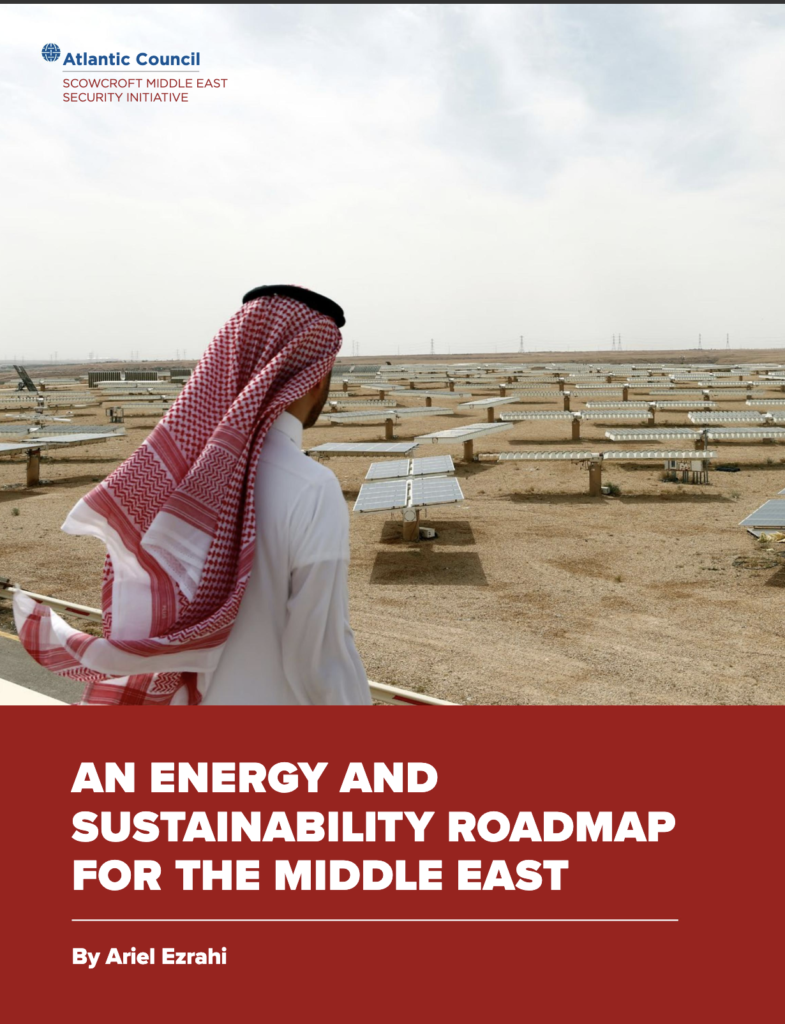
Ariel Ezrahi, Head of the MENA2050 Energy Transition Committee, has written an insightful and thought-provoking article for the Atlantic Council titled “An Energy and Sustainability Roadmap for the Middle East.” In this engaging piece, Ezrahi leverages his extensive expertise in energy diplomacy and sustainability, offering a comprehensive analysis of the region’s energy challenges and opportunities. […]
New Paper on the Future of The India Middle East Europe Economic Corridor (IMEC)
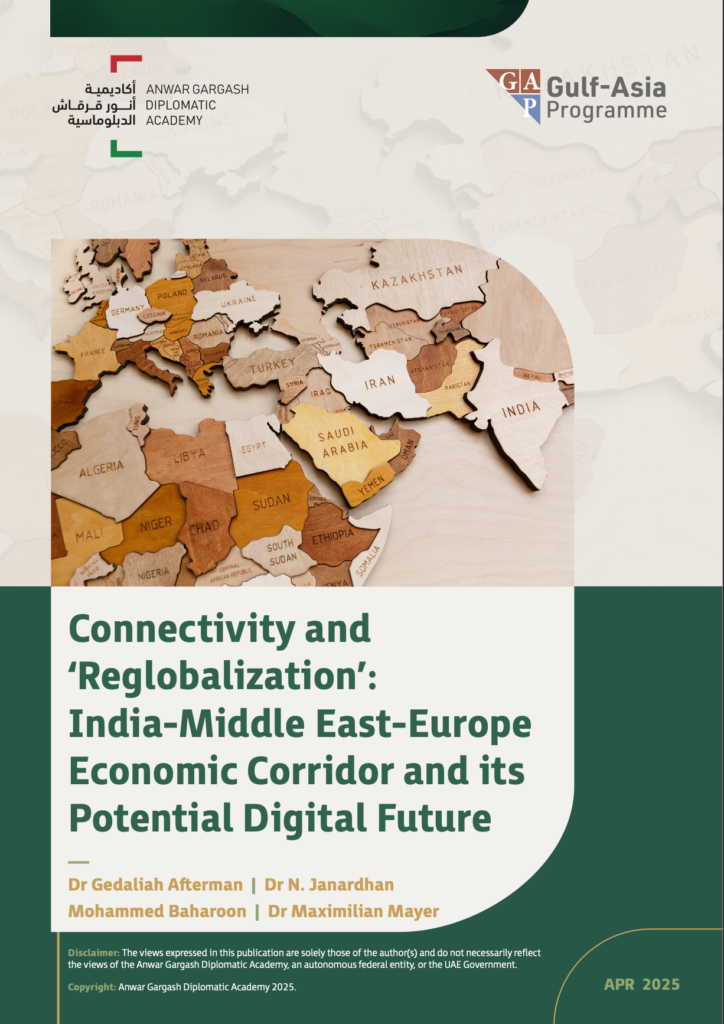
As global dynamics continue to evolve, the concept of “reglobalization” is reshaping conversations around connectivity, trade, and diplomacy. In a new publication by the Anwar Gargash Diplomatic Academy, a group of leading scholars explore the strategic potential of the India-Middle East-Europe Economic Corridor, with a particular focus on digital infrastructure and regional integration. Co-authored by: […]
Gaming: A Catalyst for Transformation in the MENA Region
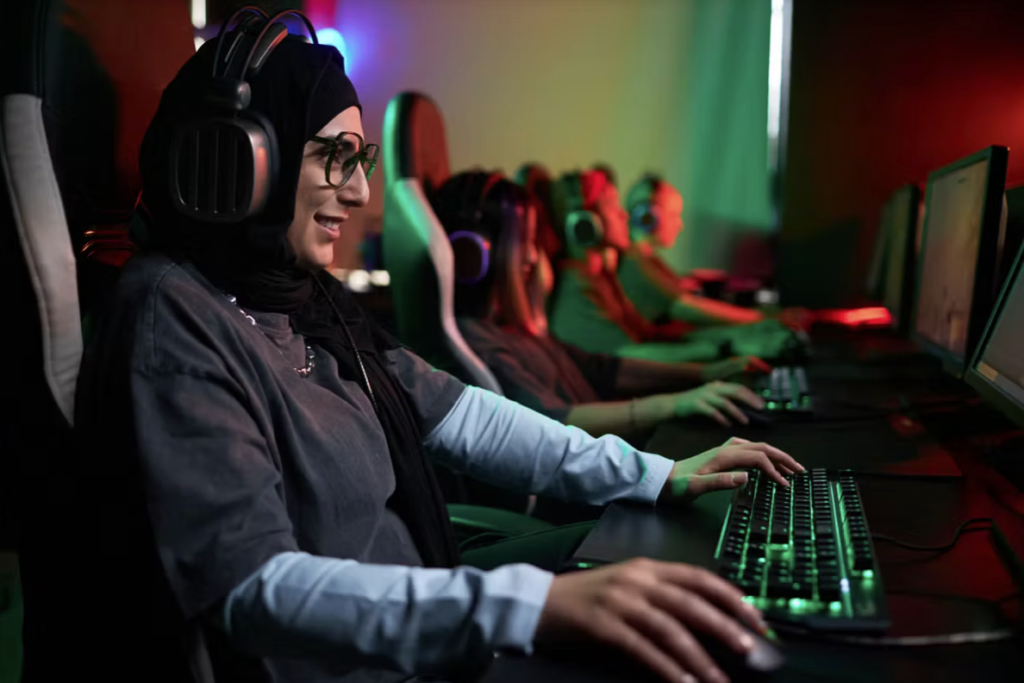
Gaming: A Catalyst for Transformation in the MENA Region The MENA region is rapidly emerging as a global gaming powerhouse, with the industry poised to revolutionize the region’s economy, culture, and technological landscape. As we look towards the future, it’s clear that gaming is not just a form of entertainment but a driving force for […]
Webinar – Leaders in the Middle East and North Africa: How Ideology Shapes Foreign Policy
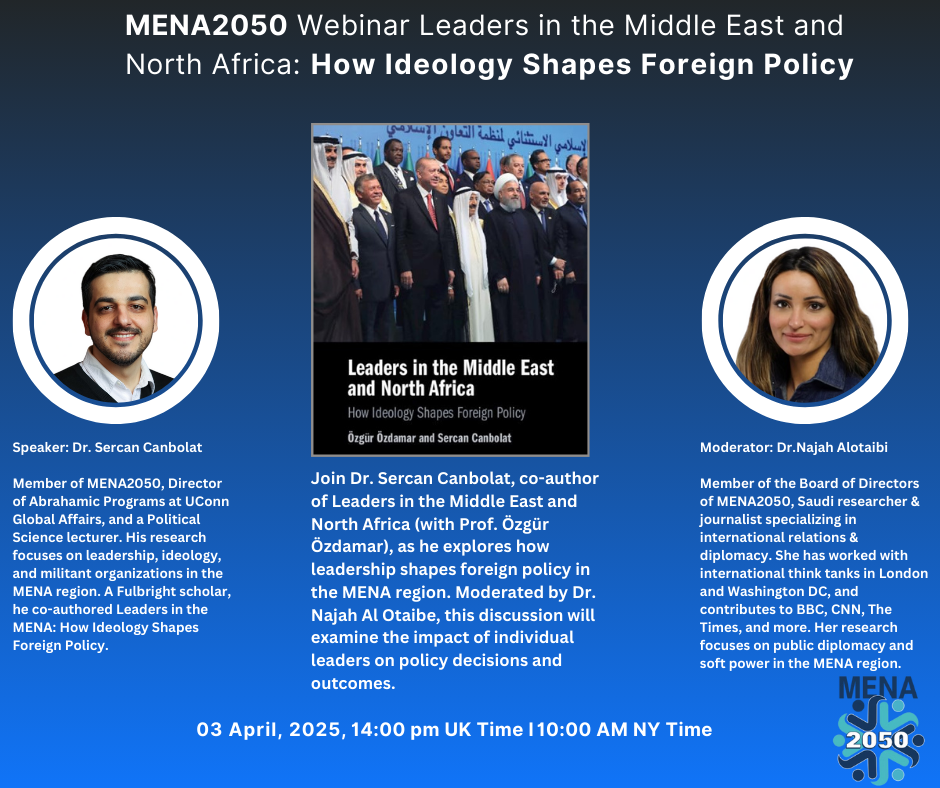
On April 3, 2025, MENA2050 hosted an enlightening webinar focused on the intersection of leadership, ideology, and foreign policy in the Middle East and North Africa. The session delved into how ideological frameworks shape foreign policy decisions across the region, featuring expert insights from Dr. Sercan Canbolat and Dr. Najah Alotaibi. A Deep Dive into […]
Webinar – The Abraham Accords: National Security, Regional Order, and Popular Representation
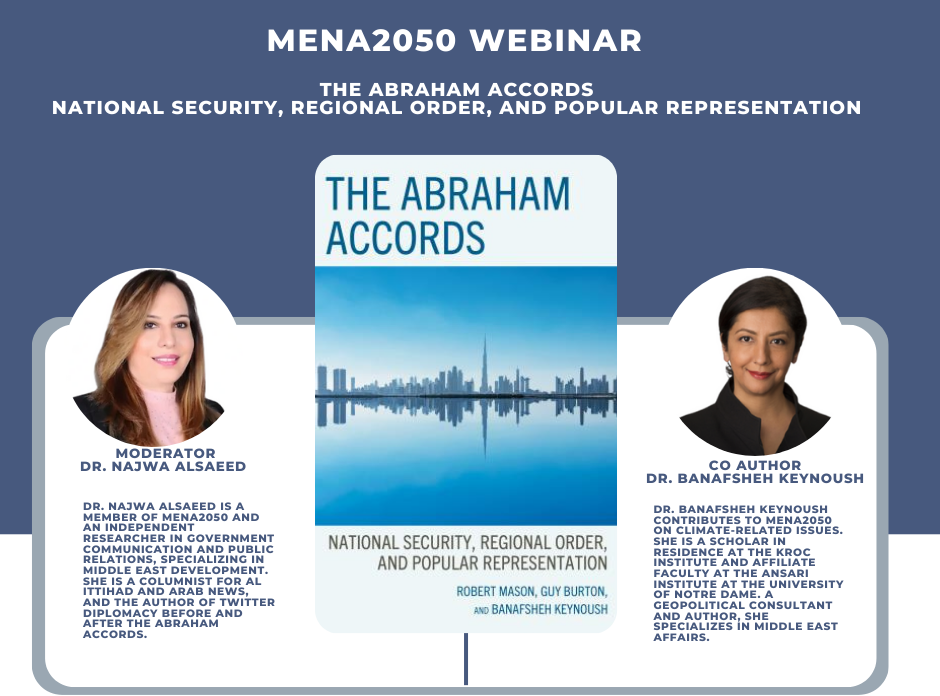
MENA2050 recently held a thought-provoking webinar featuring Dr. Banafsheh Keynoush, A contributor to MENA2050 on Climate related issues, Scholar in Residence at the Kroc Institute, Affiliate Faculty at the Ansari Institute for Global Engagement with Religion. The session was moderated by Dr. Najwa Al Saeed, a member of MENA2050, columnist at Al Ittihad and Arab […]
Webinar – Morocco’s Middle East Diplomacy: Balancing Ties with Israel & Palestine
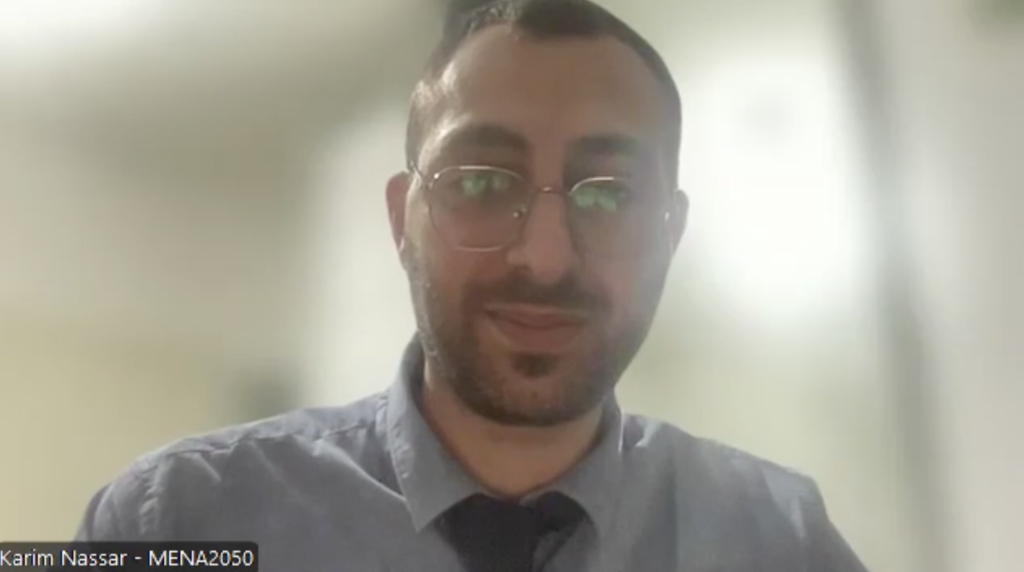
MENA2050 is pleased to share the recording of our recent webinar on Morocco’s diplomatic approach in the Middle East, where we explored its unique ability to maintain strong relations with both Israel and Palestine. Key Discussion Points: Featured Speakers: This discussion provided valuable insights into Morocco’s historical and contemporary role in Middle East diplomacy, highlighting key figures, […]
Dr. Taysser Mustafa
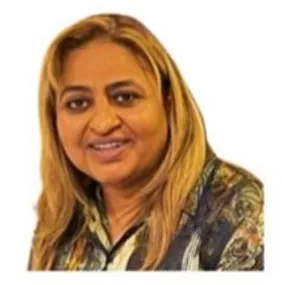
Sudan, UAE
Sudan, UAE
Dr. Tayseer is a distinguished Global Peace Ambassador, CEO of four esteemed companies spanning three continents, and a Consultant Occupational Medicine Physician with over three decades of experience. Her remarkable career journey encompasses leadership roles in Ocean 6 Ltd. (Abu Dhabi Global Market – UAE), Areena For Investments Sudan, Elsheikh Mustaf Elamin Agricultural Co. (Sudan), and Global Medical Technology Ltd. (U.K.). With a background in medicine, healthcare management, research, and business, Dr. Tayseer is widely recognized for her expertise and contributions to occupational health and safety. She has played pivotal roles in major projects across the United Kingdom, United States of America, and the SWANA region, earning accolades from both medical and business communities. Her membership with esteemed organizations such as the Faculty of Occupational Medicine in Ireland, American College of Occupational and Environmental Medicine (ACOEM), Society of Occupational Medicine (SOM), and the Faculty of Medical Leadership and Management UK underscore her professional eminence. She is published editor to the Guide to Occupational Health and safety for managers and supervisors for Enterprises in developing countries(http://www.icohweb.org/site/oh-guide.asp). Moreover, her membership in prestigious institutions like Chatham House further solidifies her standing as a leader in her field. Born into a family with a rich Entrepreneurial legacy spanning over a century, Dr. Tayseer possesses a deep understanding of the Buisness ecosystem in Sudan and excels in fostering international collaboration. Furthermore,during the COVID-19 pandemic, she served as the principal Occupational Medicine advisor to Mubadalla, showcasing her leadership and problem-solving abilities in managing the outbreak in the UAE. Currently Dr Tayseer is leading Ocean 6 which is specialised in sourcing top innovations and supporting commercialization of products that would have great positive impact on the planet ,its environment and living beings. Dr. Tayseer’s passion for innovation and belief in the potential of initiatives such as the Abraham Accords to foster cooperation between nations highlight her visionary approach. She actively participates in high-level workshops with influential organizations like N7, the Atlantic Council, and Women Connect to Innovate, focusing on promoting peace and normalization in the Middle East for sustainable development. Her ongoing projects addressing critical issues impacting children’s lives in Sudan exemplify her commitment to humanitarian causes. Dr. Tayseer’s advocacy for building bridges between nations, promoting peace through innovation, empowering women, protecting children, and promoting sustainable business practices exemplify her leadership skills and unwavering belief in collaboration. Nominated for a prestigious governorship position in her home country Sudan, Dr. Tayseer demonstrated inspiration to women in worldwide dedicated to making a positive impact in their communities and beyond. With her extensive knowledge of agriculture and steadfast commitment to collaboration, she is paving the way for a brighter future, establishing a lasting legacy of hope and progress for generations to come. Dr Tayseer believe that we all live in one planet and hence we have to collaborate together for the improvement of our lives and our beautiful planet thus aiming to create heaven on earth.
Middle Eastern Perspectives 2: Regional Cooperation and Development
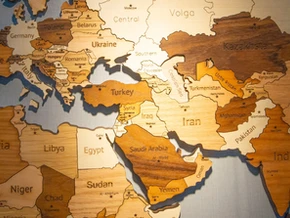
Israeli author Kobe Huberman wrote an article simultaneously published with my previous article under the same title. Huberman’s article was published on our Middle Eastern initiative’s website, MENA2050. Both articles discuss two key aspects: the transformation of the Middle East’s political landscape from 2002 to 2022 and the need to reshape perspectives into a three-dimensional framework to address challenges bravely. This includes reframing the peace process in the Middle East from a perspective of regional cooperation and solidarity, for the benefit of all people in the region.
While acknowledging the security challenges faced by the region, it is essential not to overemphasize them at the expense of supporting developmental initiatives that contribute to stability. Several examples demonstrate this point, such as the electricity-for-water initiatives involving the United Arab Emirates, Jordan, and Israel. The establishment of the Saudi sovereign wealth fund’s direct investment initiative in Iraq with its various sectors, as well as the regional multi-party cooperation in electricity transmission to Lebanon and the connection of Iraq to the Gulf electrical grid, highlight the potential for regional collaboration and its positive impact on development.
